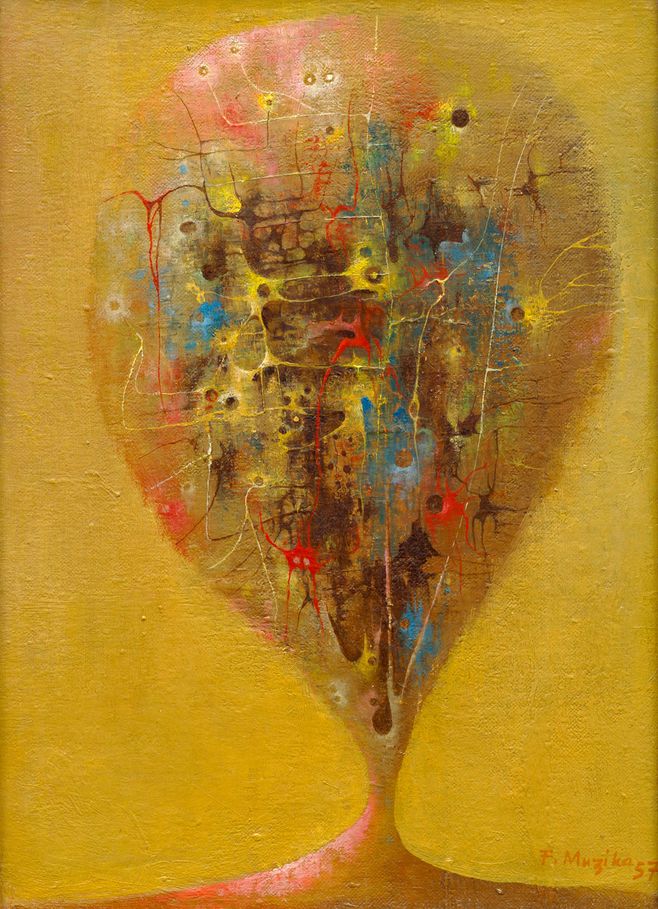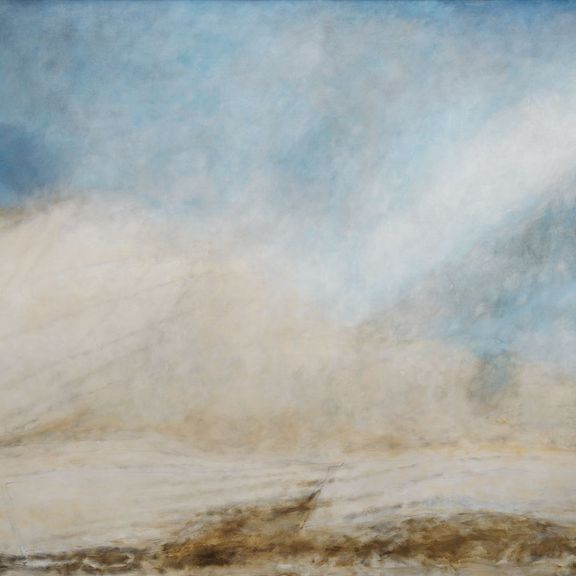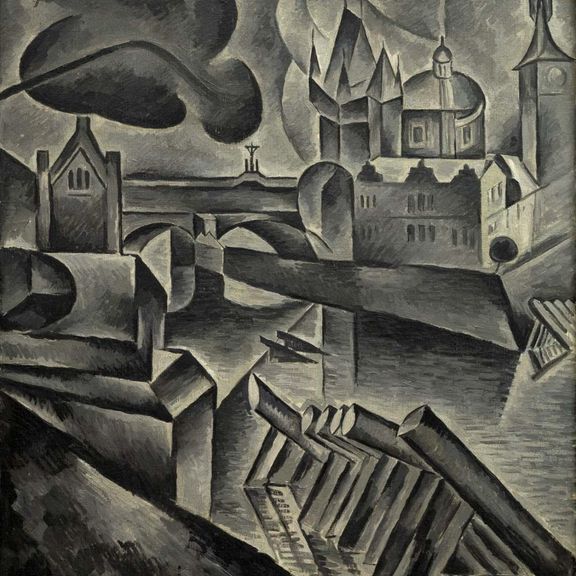
oil on canvas
1957
lower right
34 × 24 cm
frame
František Muzika’s work represents an integral part of Czech modern art, especially in painting, book graphics, and stage design. Shortly after the World War II, Muzika was appointed a teacher at the Academy of Arts, Architecture and Design in Prague, where he worked until 1970, and thus met many artists who established themselves in the field of visual arts, especially in the second half of the 20th century. The post-war period allowed him to paint freely again and briefly even completely rehabilitate his persecuted wartime work. In 1946, Jaromír Pečírka organised a short retrospective exhibition of his work, and the following year he published a small monograph on him. In 1947, however, the Mánes jury labelled his works as “formalistic” and as a result of another unfavourable political and social development in the country, this disdainful criticism followed him for the next 17 years. He could neither publish nor exhibit his new works, but he continued to create, against the will of fate, with a new approach only very slightly related to his war and pre-war work. Shortly after the end of World War II, Muzika realised the threat of conventionalising imaginative art based on the free compositional linking of realistically depicted objects. Like many other artists, including Josef Šíma, Max Ernst, Toyen, and Wolfgang Paalen, he resorted to an inner form of surrealism, less connected with three-dimensional space and veristic rendering of dreamy images and more directed towards spiritual expression. He replaced dream scenes with floral structures formed into the shapes of Trees, Weeds, and Swamps, as he entitled his paintings from the 1950s. This vegetal fantasy is also reflected in Tree XXVI in Yellow, which grows from a shallow environment, bounded only by a thin membrane, under which flourishes a colourful nerve structure reminiscent of the dendritic tree of a cell. This is not a random lyrical abstraction; on the contrary, it is a deliberately interpreted visual experience with new tools of scientific knowledge for investigating microstructures. With this new artistic method, Muzika participated in humanising new areas of reality hitherto incomprehensible by human sensory perception. Tree XXVI in Yellow was presented at the artist’s solo exhibition in 1963 (New paintings by František Muzika, Fronta Exhibition Hall, Prague, 1 December 1963 – 1 January 1964, cat. No. 42). A year later it was exhibited at the Czechoslovak pavilion of the XXXII. Venice Biennale (Esposizione Biennale Internazionale d’Arte 1964, Venice, 20 June – 18 October 1964) and reproduced in the associated catalogue (p. 163, cat. No. 22). It was also published in the artist’s monograph (F. Šmejkal: František Muzika, Prague 1966, p. 151, black and white reproduction fig. 138). Another reproduction can be found in Šmejkal’s article on František Muzika (Výtvarné umění, No. 4, Prague 1963, p. 176). It comes from a high-quality Moravian collection. Assessed during consultations by PhDr. K. Srp and PhDr. R. Michalová, Ph.D. The expertise of Mgr. E. Vele is attached.







